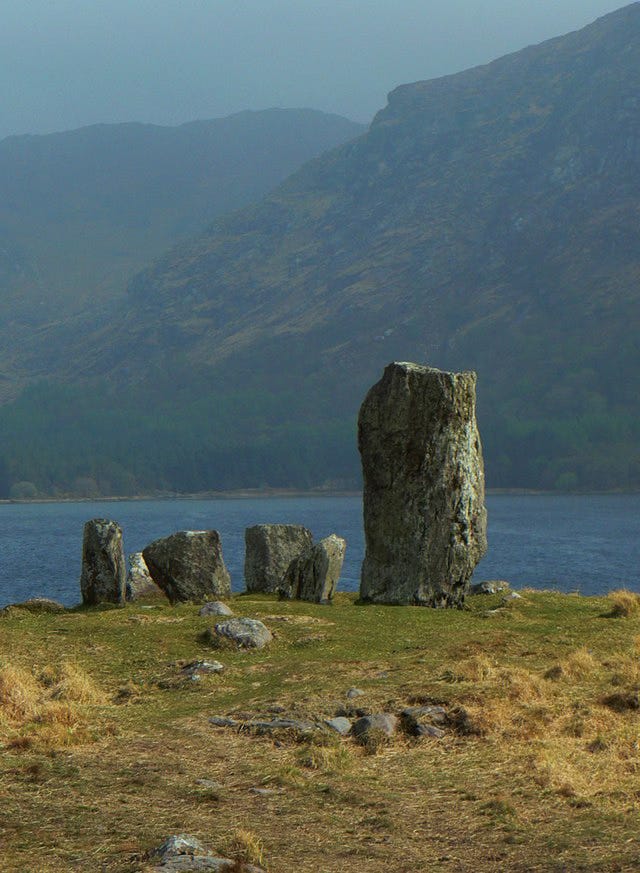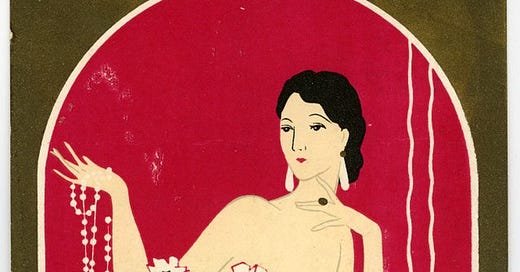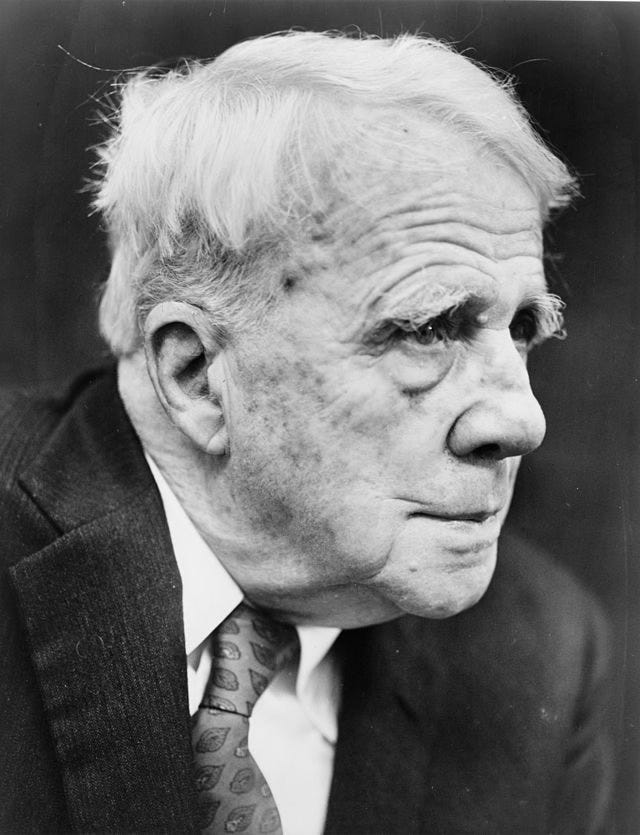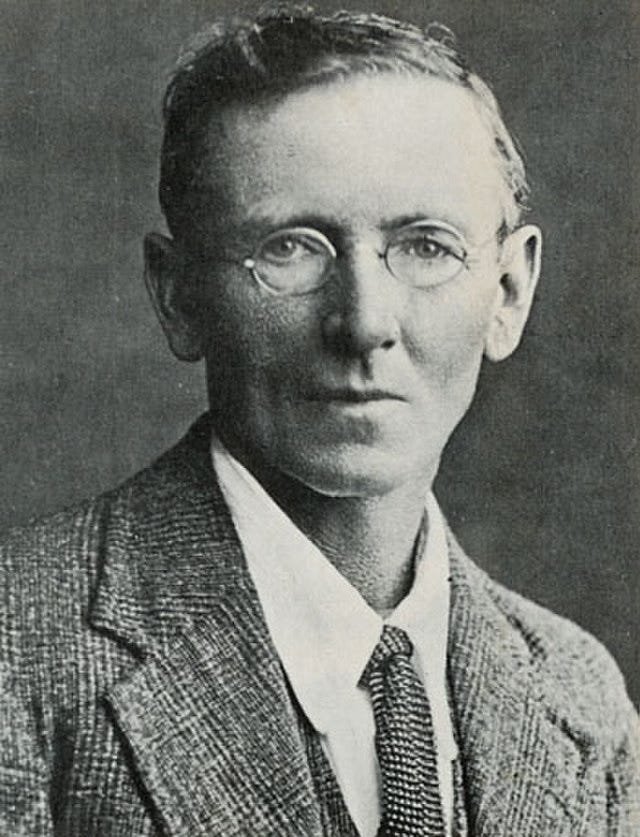Poems for the New Year: A Short Collection of Poetry
Meditations that inspire, comfort, celebrate, and encourage
I’m sure your inboxes are full of Christmas cheer right now so I wanted to do something different. It’s easy to get wrapped up in poetry pertaining to the magic of the merriest holiday. However, its sometimes-overlooked sister holiday, New Year’s, doesn’t get as much fanfare when it comes to poetic mediums. Much of the “content” dealing with New Year’s is, in my opinion, routine. One can only read so many articles on how to keep exercising after that initial jolt of January motivation wears off. List articles on everything from how to be more organized to how to finally score that husband you’ve been searching for find their way to our social media advertising, TV and radio commercials, and email “Promotions” tabs. In a world that constantly demands you have a positively transformational experience right now, dammit—it feels about as authentic as the snow machines I see here in Florida every December as businesses and families try to create winter wonderlands among repurposed swamplands.
I think the New Year’s Eve holiday may sometimes cause more stress than wonder because we put so much pressure on ourselves. The more the evening wears on, the clock ticking to midnight feels like a hammer, not a hand.
What if we weren’t worried about personal metamorphosis over the New Year’s holiday? Right now, every other living thing in the world is resting, hibernating, and not experiencing one iota of remorse over winter days of leisure. But, here we humans are, checking every list more than twice because we don’t possess the supernatural powers of old Saint Nick, and still pushing our tired motors into a faster gear even though they’re begging for a rest stop.
Winter is often thought of as a dead season. Leaves have given in to their own mortality, falling effortlessly off trees as they anticipate the touch of a child’s grasp, young eyes excited by distinct colors and lines. Far away from the life-giving sun, Earth herself, from her animals to her naked light, becomes scarce. Nature offers these lessons to us. Contrary to the popular beliefs of hustle culture, it’s beneficial to slow down to the natural speed of the season and learn from the world around us. With this mental shift, we realize just how full of life winter is. During this time, winter whispers, it doesn’t shout. It only needs us to simply pause so we can understand the importance of all it can teach us.
This New Year’s, may you say, resolutions be damned. May you trade a to do list or vision board for quiet contemplation for contemplation’s sake. May you have comforting moments by a crackling fire or still river. May you, instead of looking ahead to all you have yet to accomplish, look back at what it took for generations of indomitable DNA to get you here. And may this realization give you peace that comes with knowing whatever the future holds, you can greet it with a strong mind and steady heartbeat. May these intentions fill you with the kind of resolve that makes New Year’s resolutions an unnecessary undertaking.
These poems below, written by doctors, wordsmiths and playwrights, theologians, and philosophers, don’t boom like a firework. The words and lessons inside these stanzas light on you like a blanket of snow—friendly, welcoming—and welcomed.
May this collection bring you inspiration, comfort, cause to celebrate, and encouragement as we all greet the New Year with composed anticipation of the possibilities to come.
*Please note, if you’re reading on a smart phone, line breaks below may differ from the original poem
The New Year by John Shaw
Born just two years after America declared independence from Great Britain, John Shaw lived three short decades, from 1778 to 1809. He passed away while sailing from Charleston, South Carolina to the Bahamas in an effort to cure the tuberculosis he’d contracted that claimed the lives of so many during this time period. Shaw was a poet by night, and doctor by day. He served in the Navy as a ship surgeon before heading back to his native Maryland and opening a private practice in Baltimore.
In between his dedication to science, he spent his time writing poetry and studying language. Perhaps this well-rounded approach helped him during his days spent treating patients. It has been my experience that the best doctors have a mind that gravitates towards the artistic.
Shaw’s poem, “The New Year,” is a blessing of sorts. It wishes us love, joy, and laughter so that we can offer those things to others. Its final lines encourage us to live well so that with each new year, we see the continuation of a legacy, not twelve months full of mistakes that need to be corrected during the next twelve months.
This elegant poem reminds us, we have much to celebrate.
The New Year
May the year that is dawning
So fresh and so pure,
Be full of the pleasures
That always endure.
The sunshine of love,
The joy of kind deeds,
The brightness of smiles
That the sad world so needs.
The kindly word uttered,
The angry unspoken:
The merry heart's laughter,
To heal the hearts broken.
And when the New Year
Has grown old and gray,
May you give it back spotless
And pure as today.Stopping by Woods on a Snowy Evening by Robert Frost
American poet Robert Frost’s “Stopping by Woods on a Snowy Evening” offers the reader a quiet moment of reflection. The beautiful thing about this poem is its minimalism. While so much poetry is filled with grandeur, Frost’s economical writing style brings forth only what we need, no distractions.
Allow the serene, guarded essence of this poem to take hold during your own contemplation. And though, like the poem’s speaker, you may find yourself alone sometimes, may you never feel the sting of loneliness at the miles ahead. With this poem, Frost teaches us, not only is rest necessary, but it is also vital to noticing and appreciating the gravity of our surroundings.
Stopping by Woods on a Snowy Evening
Whose woods these are I think I know.
His house is in the village though;
He will not see me stopping here
To watch his woods fill up with snow.
My little horse must think it queer
To stop without a farmhouse near
Between the woods and frozen lake
The darkest evening of the year.
He gives his harness bells a shake
To ask if there is some mistake.
The only other sound's the sweep
Of easy wind and downy flake.
The woods are lovely, dark and deep.
But I have promises to keep,
And miles to go before I sleep,
And miles to go before I sleep.Sonnet 116 by Shakespeare
While kisses under the mistletoe could ruffle the feathers of even the most stoic-hearted, Shakespeare’s “Sonnet 116” reminds us of the true nature of love. Love endures through the strongest of storms. It is a guiding star, a compass, a refuge. Whether the love of a soul mate or the love of a craft, this work presents to us the embodiment of the lifelong act of love itself. It’s a good reminder of one of the most important virtues as we look to a new year.
Sonnet 116
Let me not to the marriage of true minds
Admit impediments. Love is not love
Which alters when it alteration finds,
Or bends with the remover to remove:
O no! it is an ever-fixed mark
That looks on tempests and is never shaken;
It is the star to every wandering bark,
Whose worth's unknown, although his height be taken.
Love's not Time's fool, though rosy lips and cheeks
Within his bending sickle's compass come:
Love alters not with his brief hours and weeks,
But bears it out even to the edge of doom.
If this be error and upon me proved,
I never writ, nor no man ever loved.The Poor, Poor Country by John Shaw Neilson
The New Year came with heat and thirst and the little lakes were low,
The blue cranes were my nearest friends and I mourned to see them go;
I watched their wings so long until I only saw the sky,
Down in that poor country no pauper was I.
The first poem in this collection was written by John Shaw. And now, we have John Shaw Neilson, an Australian poet who lets us know with this poem the richness available to us amidst sprawling, unencumbered landscapes.
Neilson became a popular poet. But as a child, he spent his days doing manual labor because school was often out of the question for his humble family. His first sparks of inspiration for the written word came from his earliest days spent reading the Bible and a collection of Robert Burns poetry he happened to find. Scottish poet Robert Burns is the man behind “Auld Lang Syne,” the song heard ‘round the world at the stroke of midnight each new year.
Despite Neilson not receiving any formal education on poetry, and maybe, because he didn’t receive formal education, he became an inspired, beloved lyric poet. His formal poetry reveres natural landscapes and speaks to the importance of undisturbed beauty.
May the wide-open feel of this poem translate to your new year, where adventure, beauty, and pleasure in the pathless journey awaits.
The Poor, Poor Country
Oh 'twas a poor country, in Autumn it was bare,
The only green was the cutting grass and the sheep found little there.
Oh, the thin wheat and the brown oats were never two foot high,
But down in the poor country no pauper was I.
My wealth it was the glow that lives forever in the young,
'Twas on the brown water, in the green leaves it hung.
The blue cranes fed their young all day - how far in a tall tree!
And the poor, poor country made no pauper of me.
I waded out to the swan's nest - at night I heard them sing,
I stood amazed at the Pelican, and crowned him for a king;
I saw the black duck in the reeds, and the spoonbill on the sky,
And in that poor country no pauper was I.
The mountain-ducks down in the dark made many a hollow sound,
I saw in sleep the Bunyip creep from the waters underground.
I found the plovers' island home, and they fought right valiantly,
Poor was the country, but it made no pauper of me.
My riches all went into dreams that never yet came home,
They touched upon the wild cherries and the slabs of honeycomb,
They were not of the desolate brood that men can sell or buy,
Down in that poor country no pauper was I.
The New Year came with heat and thirst and the little lakes were low,
The blue cranes were my nearest friends and I mourned to see them go;
I watched their wings so long until I only saw the sky,
Down in that poor country no pauper was I.
Beannacht by John O’Donohue
The last poem of this collection is a blessing. It’s a blessing I want to extend to you. Thank you for being a part of Classically Cultured. I promise to bring you inspiring, thought-provoking, interesting writing and music throughout next year. Though I spent a portion of this essay telling you why you don’t need to make any New Year’s resolutions, I’ve in fact, just made one to you.
“Beannacht” is a word of Gaelic origin that means blessing, or greeting. O’Donohue was one of Ireland’s beloved poets. He was also a Catholic priest for almost 20 years before dedicating his life to the study of philosophy. His deep contemplation over the years had a significant focus on beauty, but not necessarily in the modern sense of the term.
He once told On Being during an interview:
“Beauty isn’t all about just nice loveliness…Beauty is about more rounded, substantial becoming. So I think beauty in that sense is about an emerging fullness, a greater sense of grace and elegance, a deeper sense of depth, and also a kind of homecoming for the enriched memory of your unfolding life.”
O’Donohue is a contemporary poet, so his work isn’t in the public domain. I’ve included an excerpt of his poem, “Beannacht,” below. He dedicated it to his mother, Josie. If his words resonate with you, read the full poem here. You won’t be disappointed.
The last stanza of this blessing poem is certainly steeped in beauty. And in his words you’ll find everything I wish for you, dear reader:
May the nourishment of the earth be yours,
may the clarity of light be yours,
may the fluency of the ocean be yours,
may the protection of the ancestors be yours.
And so may a slow
wind work these words
of love around you,
an invisible cloak
to mind your life.
I wish you a peaceful New Year, and I hope these poems provide spiritual nourishment over the holiday.
Cheers to 2025!
For auld lang syne, my dear
For auld lang syne
We'll drink a cup of kindness yet
For the sake of auld lang syne







Ah, poetry that rhymes again. This is great. Happy New Year!
I just love this article and these poems. Hat tip to you. And happy New Year!